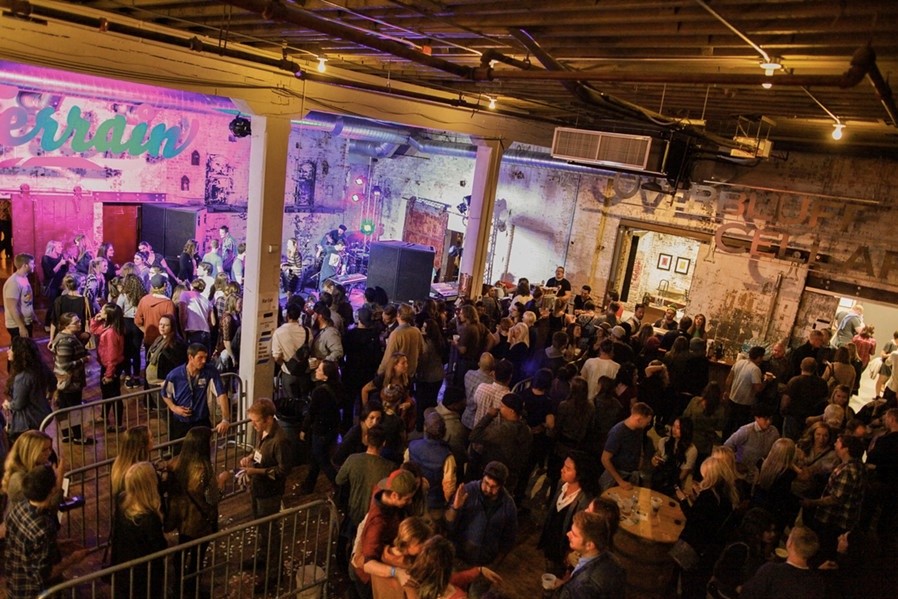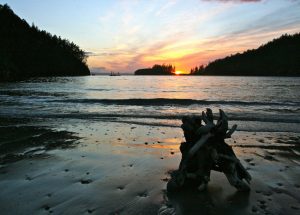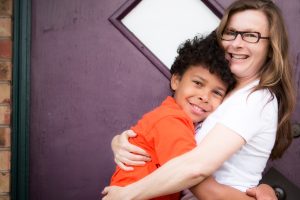Did you know that while the IAC may not be as visible as our Grant Committees, it is by far our largest committee with over fifty members participating on any given year? Why so many? We follow fifteen grantees— each of our annual five recipients— for 3 years with 3 to 5 members on each grantee team.
The Impact Assessment Committee’s charge is to “monitor the progress of Foundation Pooled Grants, communicate the impact of these grants to the Foundation’s membership, provide feedback to the Grant Committee and seek to strengthen the relationships with the Foundation’s grantees.”
A cohort of Executive Directors representing a wide range of our past grantees form a key part of the IAC, providing valuable insight into the challenges of operating a nonprofit. Our deepest thanks to these Executive Directors who shared their time and expertise with us: Brian Knowles (Bailey-Boushay House, 2012 Health Grantee); Daniel Petersen (Seattle Youth Symphony Orchestra, 2012 Arts & Culture Grantee); John Floberg (WA State Parks Foundation 2013 Environment Grantee); Kelly Stockman McKee (Friends of the Children, 2008 Education Grantee); Stan Ledington (The Health Center, 2013 Health Grantee); Jorge Barón (Northwest Immigrant Rights Project, 2013 Human Services Grantee); John Bradshaw (Seattle Shakespeare Company, 2011 Arts & Culture Grantee); and Helen McGovern-Pilant (Emergency Food Network, 2010 Human Services Grantee).
At meetings, the Impact Assessment Committee focuses its discussion primarily on four key areas:
- Organizational accomplishments with our grants;
- Challenges faced and lessons learned;
- Financial health and leadership stability;
- Themes and trends that cross all five areas of our funding.
In addition to looking for sector trends that can better inform our work, IAC also is curious about the trends in our own grant making. Which communities are we funding, and where? Which groups of individuals are being served by the grants we make? Where are gaps? In response to these questions, our staff will be conducting an internal trends analysis over the summer, and we will publish those results in the early fall.
The following are highlights of what the Impact Assessment Committee observed and learned this past year:
- Organizational change is inevitable. Successful organizations have the resilience to navigate change and manage adversity. In the future, members serving on the Grant Committee may want to consider if there are ways to assess an organization’s resilience, especially if unexpected change could prevent the organization from achieving goals related to our grant.
- Partnerships are key to solving complex issues. If we’re funding an organization that needs to build partnerships to achieve its goals, we should consider the organization’s ability to build those partnerships. Does that organization have the clout or reputation to build effective partnerships? Why is it uniquely qualified? Does it have the capacity to be the catalyst?
- Sometimes United Way funding does matter. We don’t always have to fund organizations that also receive a lot of traditional institutional funding. In fact, we often pride ourselves on being the first foundation funder that other institutional funders follow. However, as the IAC learned from some of the Executive Directors on the Committee, in certain communities in particular, the lack of United Way support is an indicator of risks and challenges that we should fully understand and appreciate before making a funding decision.
- Executive Directors suffer from serious burnout, which leads to turnover, and fundraising is often the greatest contributing factor, especially in small to mid-size organizations. Multi-year grants of general operating support help, but the sector needs more of these. Capacity-building grants are also critical. WA Women’s Foundation can help address this troubling issue by continuing to award grants of general operating support and investing in capacity-building.
- Political events impact our grantees and their success. Uncertainty in funding sources can be a source of stress, especially for organizations that rely on federal grants. We can support our grantees by checking in with them about this topic throughout our relationship with them.
Through site visits and annual reports, we hear stories from our grantees about their triumphs and challenges. We share these occasionally in our weekly newsletters, highlight them on our Facebook page, and also would like to share some recent updates with you here.

Terrain, 2016 Arts & Culture Grantee
In their Annual report, Terrain shared that our “operating grant has helped build our capacity and deepen the roots that firmly plant Terrain as THE arts organization focusing on Spokane’s cultural vibrancy, creative economy, and artistic innovation.” They have hired staff to transition from being an all-volunteer run organization, launched new programs to cultivate the creative economy in Spokane, and continue to attract bigger and bigger crowds to their events.

Freedom Education Project Puget Sound, 2015 Education Grantee
FEPPS has had incredible success since the beginning of our grantee relationship. They shared, “In 2016 we had 4 graduates with Associate of Arts degrees. In June 2017, we had 19 graduates, which was covered in the Seattle Times. In 2018, we have over 30 women on track to graduate. All of our 12 alumni who have released from prison are enrolled in two and four-year colleges and universities upon release.” Additionally, they are working to increase advising for their students and hope to launch a BA program within the program soon.
 Washington Water Trust, 2016 Environment Grantee
Washington Water Trust, 2016 Environment Grantee
WWT is growing strategically, and shared that our support “has given staff and leadership the flexible time to delve more deeply into professional development, creative and strategic thinking that will bring innovative solutions into focus”. WWT hired their first Investments and Partnership Officer in November 2016, built a customer relationship management system, and continues to expand into more geographic regions across the state.
 Forefront, 2015 Health Grantee
Forefront, 2015 Health Grantee
Our grant to Forefront was focused on bringing suicide prevention programming and support services to rural communities in Washington, and that’s exactly what they’ve done. In two years they’ve reached six rural counties, training hundreds of health and school professionals and individuals in suicide prevention. In a recent blog post, Jennifer Barron reflected “The WA Women’s Fdn grant is very community-focused. It made it possible to have collaborations with cross-sections of communities, to ask: “what can we do?”

Amara, 2015 Human Services Grantee
In a recent report, Amara shared that “Since opening in December 2014, the King County sanctuary has provided a warm, home-like environment for more than 460 children.” Grandese’s Place (as the Emergency Sanctuary is known) helps decrease stress for children in transition to foster care, and has 118 trained volunteers. Amara continues to grow this successful program; in December 2016 they opened another emergency sanctuary, this time in Pierce County, to address an urgent need from the community.
Interested in serving on the Impact Assessment Committee? Openings will be publicized in the fall.
Through our groundbreaking model of women-powered, collective philanthropy, Washington Women’s Foundation has awarded $16 million in transformative grants that have enabled not-for-profit organizations to improve lives, protect the environment, advance health and education and increase access to the arts throughout Washington state.
All women are invited to join our strong and inclusive collective of informed women influencing community transformation. The challenges ahead of us are never as great as the power behind us. www.wawomensfdn.org
Great update on IAC work. But ads too? Weird. I suppose wordpress does it. Can’t we stop it?
Unfortunately we can’t control that but it may change when we move to the new site.
Thank you for sharing more about what IAC learned this year and how that can be brought back into the pooled fund grant process!